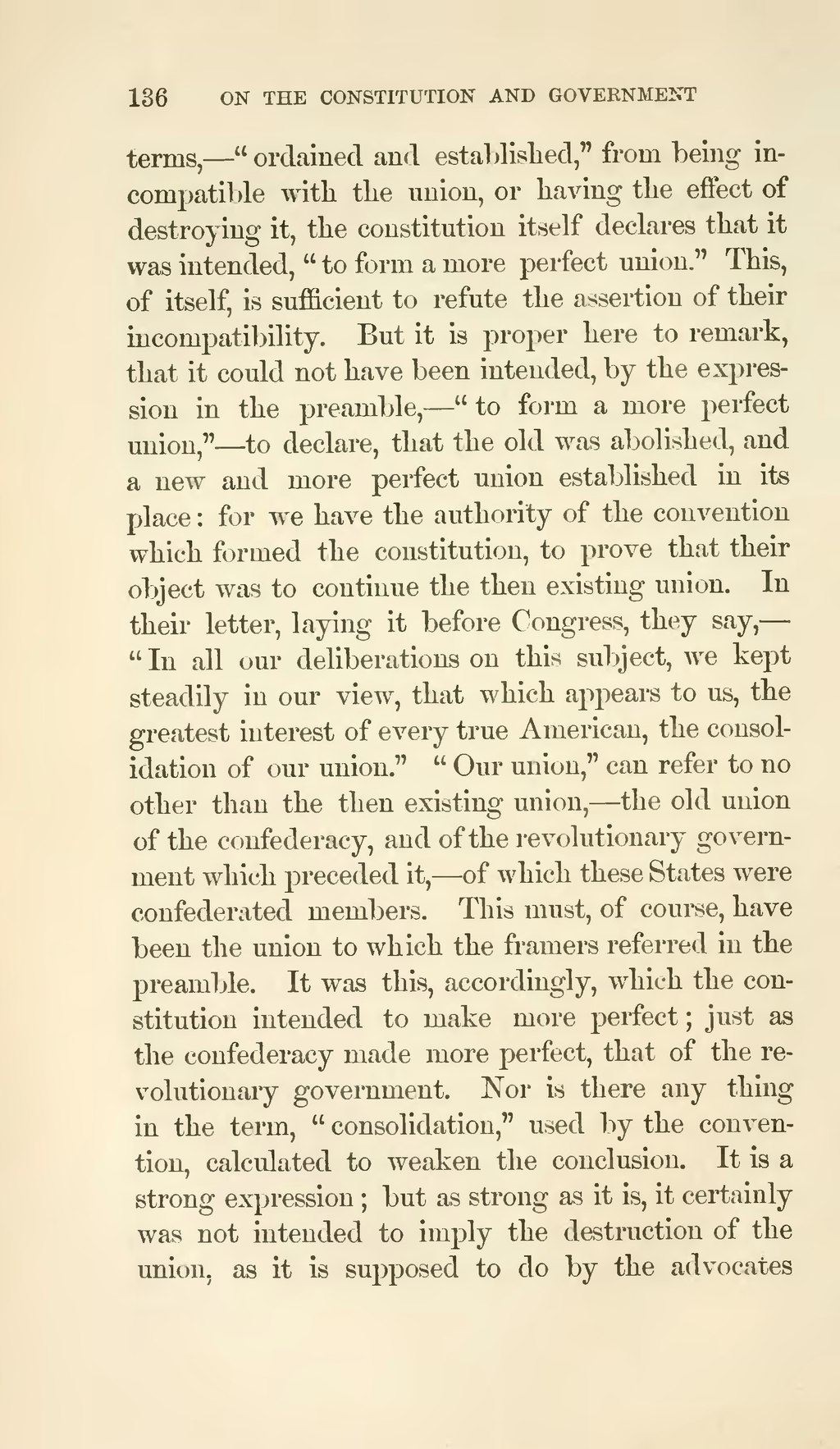terms — "ordained and established," from being incompatible with the union, or having the effect of destroying it, the constitution itself declares that it was intended, "to form a more perfect union." This, of itself, is sufficient to refute the assertion of their incompatibility. But it is proper here to remark, that it could not have been intended, by the expression in the preamble — "to form a more perfect union" — to declare, that the old was abolished, and a new and more perfect union established in its place: for we have the authority of the convention which formed the constitution, to prove that their object was to continue the then existing union. In their letter, laying it before Congress, they say — "In all our deliberations on this subject, we kept steadily in our view, that which appears to us, the greatest interest of every true American, the consolidation of our union." "Our union," can refer to no other than the then existing union — the old union of the confederacy, and of the revolutionary government which preceded it — of which these States were confederated members. This must, of course, have been the union to which the framers referred in the preamble. It was this, accordingly, which the constitution intended to make more perfect; just as the confederacy made more perfect, that of the revolutionary government. Nor is there any thing in the term, "consolidation," used by the convention, calculated to weaken the conclusion. It is a strong expression; but as strong as it is, it certainly was not intended to imply the destruction of the union, as it is supposed to do by the advocates
